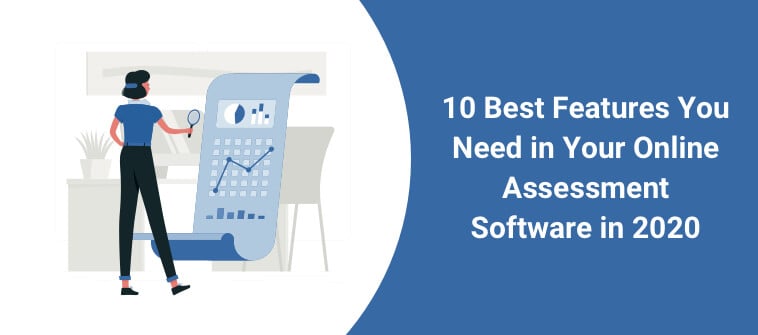Resumes and interviews are great, but they don’t give the whole picture sometimes. That’s where job assessment tests step in.
These online tools have become invaluable in the hiring process, allowing employers to look beyond the resume and evaluate a candidate’s skills, problem-solving abilities, and even cultural fit in a more standardized manner.
So, here is a blog with an in-depth analysis of job skills assessment tests, including some of the best candidate assessment platforms I have utilized in recent years to discover the ideal candidates.
What Is a Job Assessment Test & How to Create One?
A job assessment test is a tool used by employers to evaluate the skills, abilities, and personality traits of potential hires. These tests help determine whether a candidate fits a specific role and the company’s culture.
Depending on the job requirements, they can vary widely in format, including aptitude tests, personality questionnaires, or practical skill evaluations.
For example, if a tech company is hiring a software developer, it might use a coding test as part of its job assessment. This test would require candidates to solve real-world programming problems, demonstrating their coding skills, problem-solving ability, and performance under time constraints.
This helps the employer assess not only the technical capabilities of the applicant but also their ability to handle job-specific challenges effectively.
Read More:What Are Pre-Employment Assessments and Tests
How Can a Job Assessment Test Help?
A job assessment test can significantly aid recruitment by evaluating candidates‘ skills, aptitudes, and personality traits relevant to the job role. This helps ensure that the most suitable candidates are identified, leading to a better fit between employee capabilities and job requirements.
Such tests can measure technical abilities, problem-solving skills, communication, and teamwork, among other traits. By providing a standardized method of comparison, these assessments enhance the fairness and objectivity of the hiring process, reduce turnover, and contribute to overall organizational productivity and harmony.
Check out this sample job assessment test for hiring HR professionals.
Types of Job Assessment Tests
Here are some common types of job assessment tests, along with a brief description and examples:
- Aptitude Tests: These tests measure a candidate’s ability to perform specific tasks or skills related to the job they are applying for. They can include numerical reasoning, verbal reasoning, and logical reasoning tests.
Example: A numerical reasoning test might ask candidates to interpret data from graphs and charts relevant to positions in finance or data analysis.
- Skill Assessment Tests: These are designed to assess a candidate’s proficiency in particular skills crucial for the job. This can range from technical skills, like coding or machine operation, to soft skills, like communication.
Example: A coding test for a software development position might require candidates to write code that solves a given problem using a specific programming language.
- Personality Tests: These tests evaluate candidates’ characteristics and behavioral styles to determine how well they would fit into the company’s culture and the role’s demands.
Example: The Myers-Briggs Type Indicator (MBTI) assesses personality types and can be used to predict how a candidate might fit within a team.
Read: What Is a Personality Assessment? All You Need to Know
- Situational Judgement Tests (SJTs): These tests assess decision-making skills and the ability to choose appropriate actions in workplace scenarios. They are particularly useful for roles requiring judgment, such as management positions.
Example: A situational judgment test for a managerial role might present a scenario involving a conflict between two employees and ask the candidate to select the best response from multiple options.
- Work Sample Tests: These involve giving the candidate a task or project similar to what they would handle on the job, directly assessing their capability to perform job-specific tasks.
Example: For a graphic designer role, the candidate might be asked to design a logo or brochure within a certain time frame.
- Cognitive Ability Tests: These tests measure the cognitive capabilities of a candidate, including memory, reasoning, problem-solving, and information processing.
Example: An abstract reasoning test might present patterns or sequences that a candidate must complete that are relevant to roles that require strategic thinking and problem-solving skills.
- Integrity Tests: These tests evaluate a candidate’s honesty, reliability, and moral integrity. They are commonly used in roles where trust and security are paramount.
Example: Questions may assess attitudes towards theft, lying in the workplace, or adherence to rules.
- Emotional Intelligence Tests: These assess a person’s ability to perceive, control, and evaluate emotions—both their own and those of others. This is crucial in roles that demand high interpersonal interaction and leadership.
Example: The Emotional Quotient Inventory (EQ-i) might be used to evaluate how candidates recognize and manage their emotions and relationships.
Read: 13 Different Types of Assessments You Should Know About
Watch: How to Create a Video Interview Question
Top 10 Job Assessment Test Tools
1. ProProfs Quiz Maker
Easily Creating Secure Quizzes & Assessments With AI or Templates
As someone who’s created numerous secure quizzes for recruitment and training purposes, I find ProProfs Quiz Maker indispensable. Its robust security features, crucial when handling sensitive data during assessments, set it apart.
The best part about this hiring assessment tool is its AI quiz generator, which can help you generate quizzes on any topic in just a few seconds. You just need to enter the name of the topic, the type of questions, the number of questions, and whether you wish to get feedback on the answers.
Besides, it has 1,000,000+ readymade quiz questions on various topics and 100+ quiz templates, a huge time-saver. You can customize these templates and create quizzes according to your business requirements.
Isn’t it so easy? I found it quite interesting.
What You Will Like:
- Supports 15+ question types, including multiple-choice, hotspot, multimedia, and essay-type questions.
- It has an automatic grading and scoring feature that saves time and effort by quickly evaluating results.
- It integrates smoothly with major learning management systems and other third-party tools, such as Google Analytics, MailChimp, Salesforce, and more.
- Detailed reports and analytics to assess the performance of candidates effectively.
- Automated reminders and notifications to candidates for completion of assessments.
- 100+ professionally designed quiz themes to help you create interactive quizzes, along with white-labeling features.
What You May Not Like:
- The free version has ads.
- It does not support a dark mode on its website.
Cost: Free plan available. Paid plans start at $20/month.
2. iMocha
Best for Skill-Based Testing
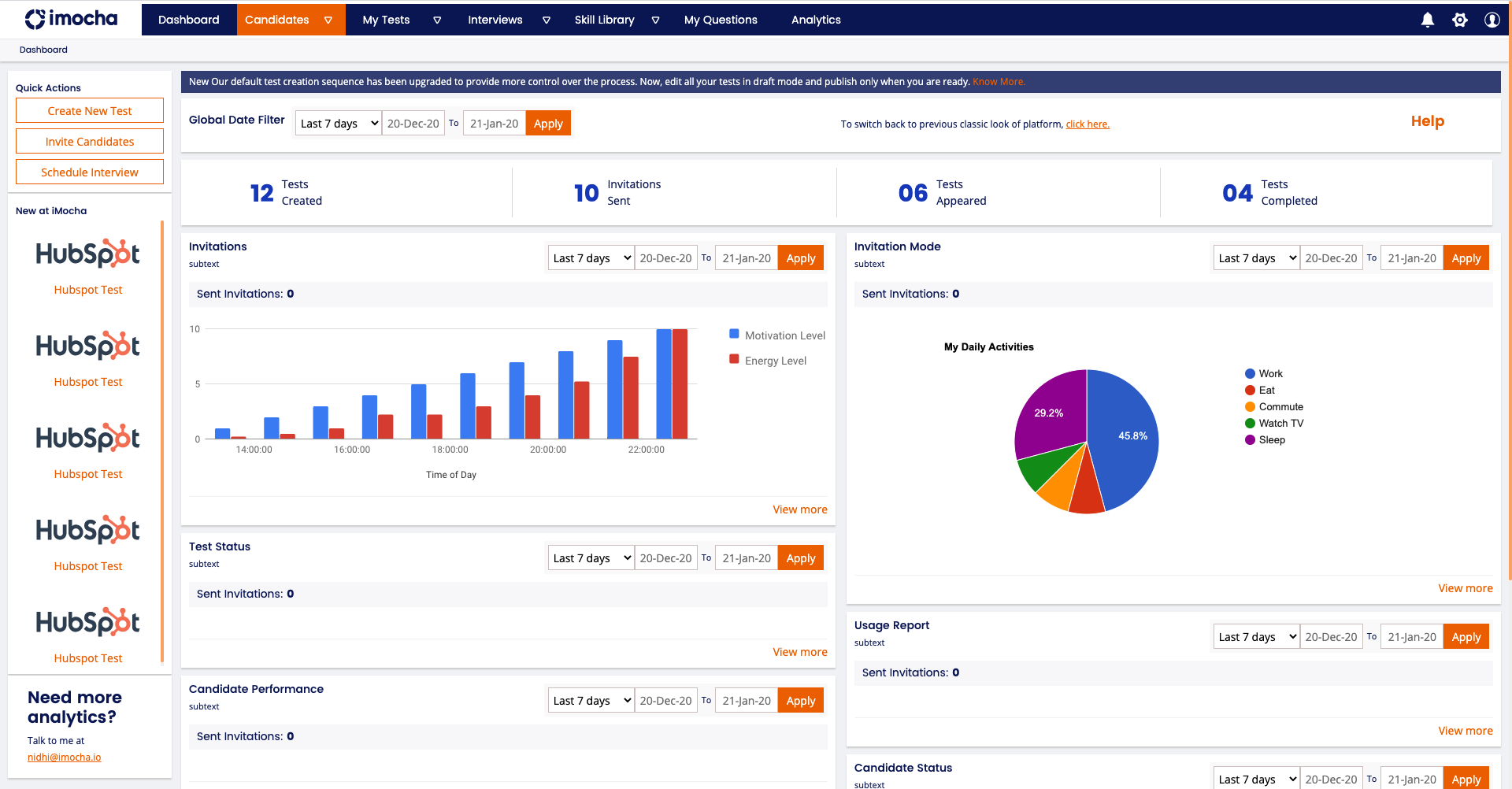
(Image Source: iMocha)
In my experience, iMocha stands out when it comes to skill-based testing. Its extensive library of tests covers a vast range of skills, from IT to soft skills, making it incredibly versatile.
What I appreciate the most is the depth of each assessment, which gauges basic knowledge and practical application of skills. This tool has been particularly useful in streamlining the hiring process by identifying candidates with the necessary skills for the job.
iMocha’s detailed analytics also help make informed hiring decisions quickly, reducing the time-to-hire significantly.
What You Will Like:
- Provides a comprehensive range of skill assessment tests covering over 1000 skills.
- The AI logic for skill-based questions minimizes the possibility of cheating.
- Offers real-time performance tracking to enable immediate evaluation.
- Features advanced proctoring to maintain the integrity of the testing process.
- The user interface is designed to be user-friendly for both administrators and test-takers.
What You May Not Like:
- Support for languages other than English is limited.
- The setup and onboarding process can be time-consuming for larger organizations.
Price: Custom pricing.
3. Harver
Best for Gamified Assessments
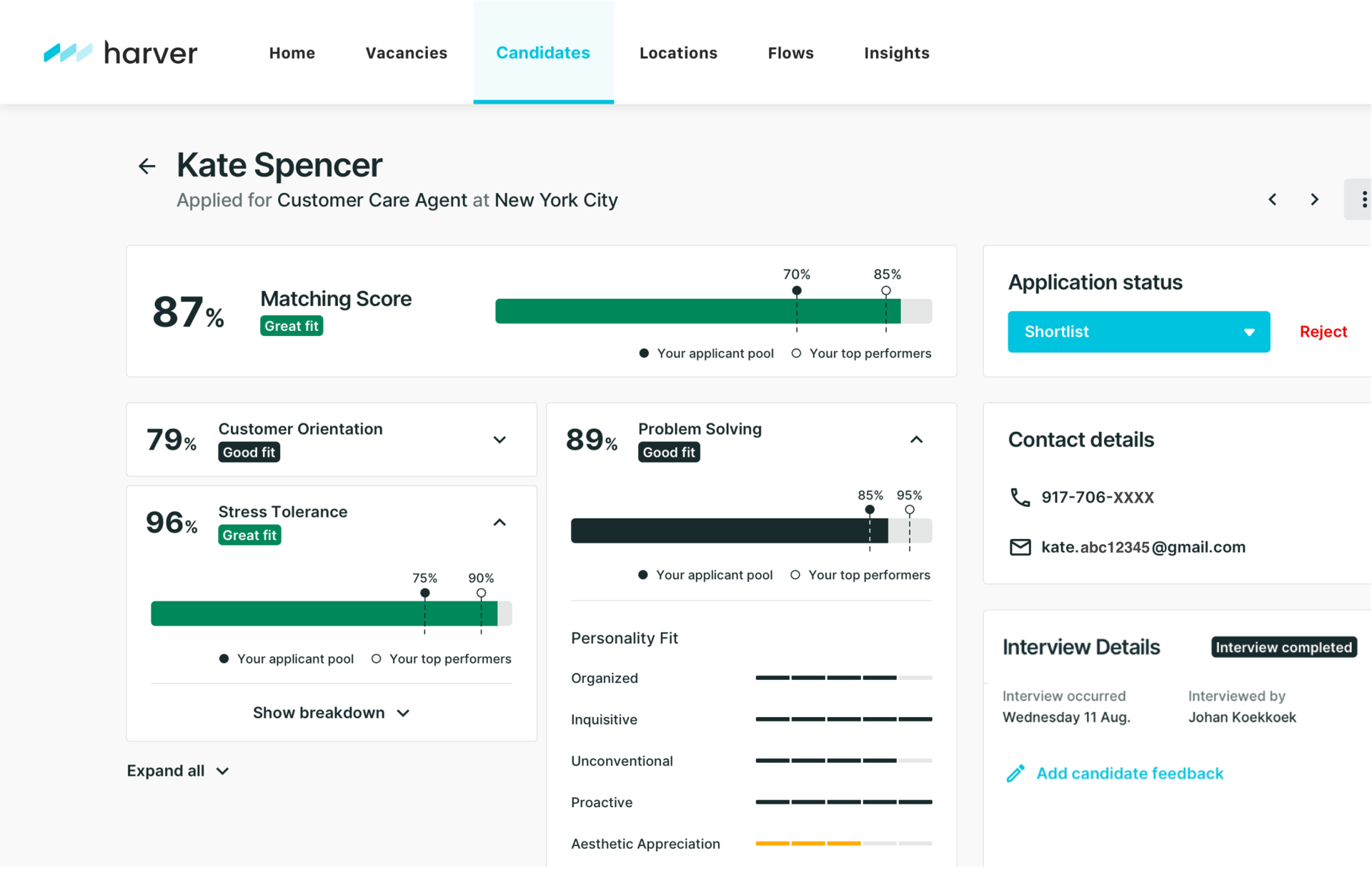
(Image Source: Harver)
Harver transforms the boring task of job assessments into an engaging experience with its gamified assessments. This approach not only captures candidates’ interest but also gives them a stress-free environment to showcase their true abilities.
My experience with Harver has shown that candidates tend to perform better and are more relaxed, leading to more accurate results. The gamification elements also simulate real job challenges, providing valuable insights into how potential hires might perform in actual work scenarios.
What You Will Like:
- Customizable game scenarios that can closely mimic real job tasks.
- The platform has smart scalability features to accommodate businesses of any size.
- Offers an advanced analytics dashboard to track and analyze candidate performance comprehensively.
- It has a mobile-friendly design that facilitates candidate participation from anywhere.
- It has multilingual support that accommodates a global applicant pool.
What You May Not Like:
- You need a bit of technical expertise to set up and customize the gaming scenarios.
- It involves a steep learning curve to utilize all the features effectively.
Cost: Starts at $5,000/year.
4. Adaface
Best for Coding Assessments
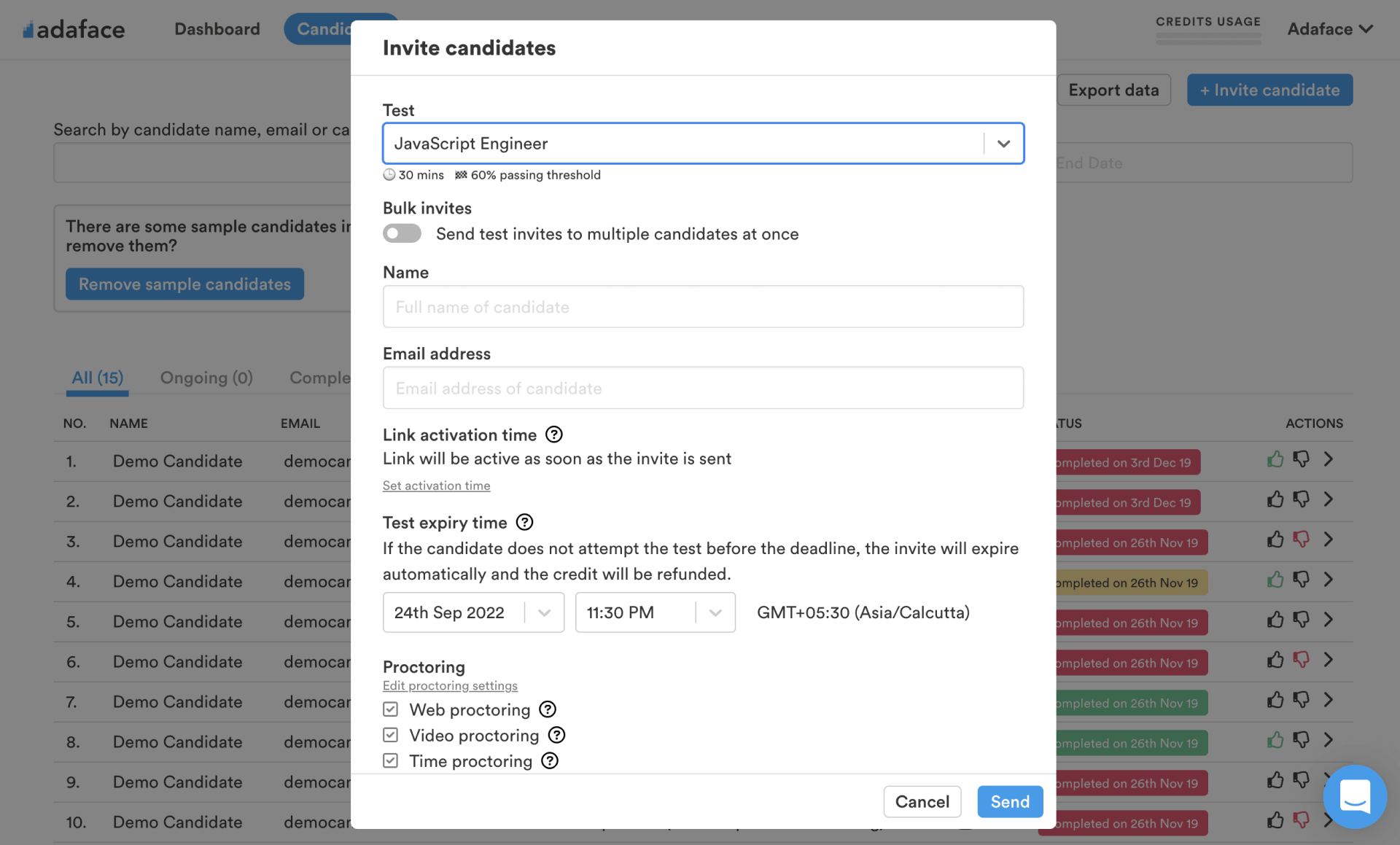
(Image Source: Adaface)
As a frequent user of Adaface for coding assessments, I can attest to its effectiveness and precision. This tool stands out because it simulates developers’ real-world scenarios, making it a critical component in my recruiting process.
The platform supports various programming languages, allowing you to assess candidates across different tech stacks. The platform’s ability to generate detailed reports on a candidate’s coding ability, logical reasoning, and problem-solving skills is invaluable.
Remember! It’s not just about writing code; it’s about writing good code that solves problems efficiently.
It ensures that we only move forward with candidates who demonstrate a clear understanding of both the syntax and the practical applications of their coding skills, which is vital for any tech role.
What You Will Like:
- Robust remote proctoring mechanisms are supported to prevent cheating during assessments.
- Allows customization of tests to include specific problems relevant to the hiring company.
- Provides dedicated customer support to help you get the most out of the platform
- Uses machine learning algorithms to analyze candidate performance and provide predictive insights into their job fit and potential for success in the role.
- Simplifies the hiring process by automating various tasks, such as scheduling interviews, sending candidate updates, and providing feedback.
What You May Not Like:
- Focuses mainly on technical roles, making it less useful for assessing non-technical positions.
- Some applicant tracking systems experience integration issues.
Cost: Starts at $180/year.
5. Vervoe
Best for Role-Specific Simulations
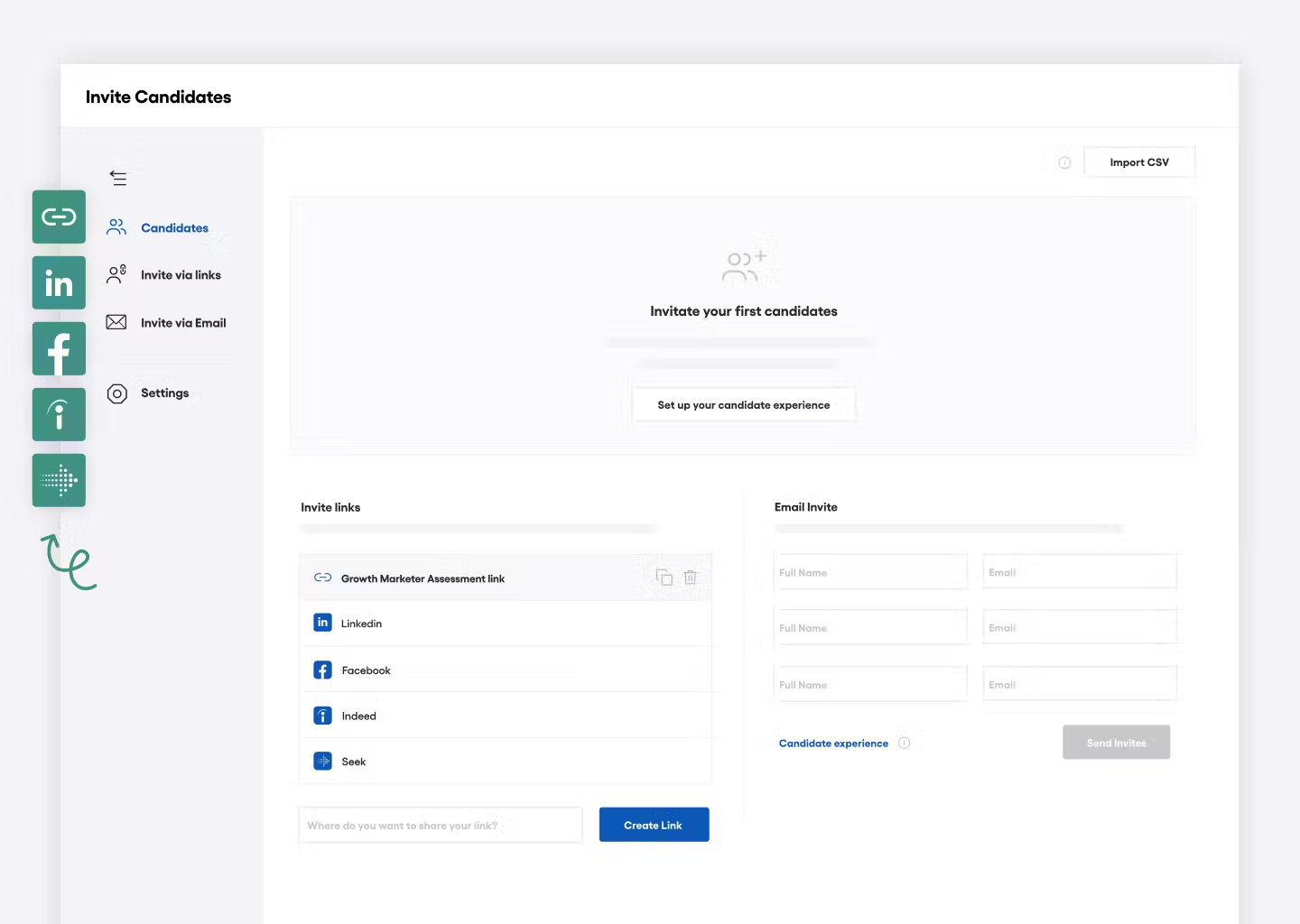
(Image Source: Capterra)
My experience with Vervoe has fundamentally changed how I approach role-specific simulations in recruitment.
The platform allows candidates to engage in tasks that mirror job responsibilities, offering me a realistic preview of their potential performance. Vervoe’s strength lies in its flexibility to customize simulations for various roles, from sales to software development.
This customization means I can assess a candidate’s practical skills, decision-making capabilities, and job fit simultaneously. The insights gained from these simulations are far superior to those derived from traditional interviews, as they directly observe how a candidate performs in real-life work situations.
What You Will Like:
- Supports an AI-driven grading system that evaluates candidate performances with high accuracy.
- Supports rich multimedia to enhance the assessment experience for candidates.
- Integrates easily with existing recruitment workflows to streamline processes.
- Provides comprehensive reporting tools to assist in informed decision-making.
- Allows for extensive customization of assessments to accommodate various roles and industries.
What You May Not Like:
- Since it is based mainly on simulations, it may not prove as effective for assessing entry-level positions.
- Access to premium features of the tools increases the costs significantly.
Cost: Starts at $300 as a one-time payment for up to 10 candidates.
6. TestInvite
Best for Aptitude Tests
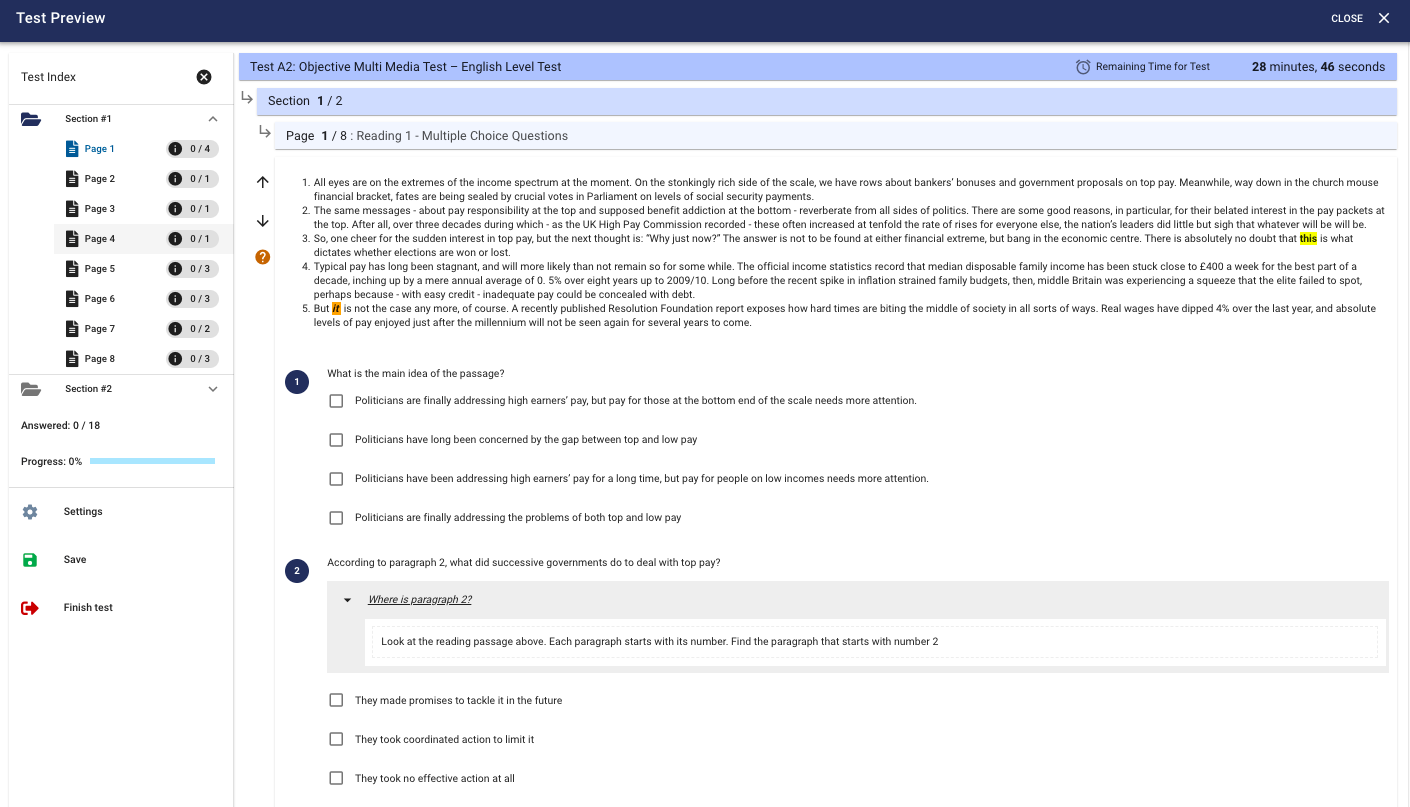
(Image Source: Testinvite)
I used TestInvite extensively for conducting aptitude tests because it manages timed assessments effectively to ensure that each candidate’s experience is consistent, fair, and controlled.
What I particularly value about TestInvite is its sophisticated anti-cheating technology, which includes secure browser technology and live video monitoring. This makes it ideal for high-stakes testing where integrity is paramount.
The comprehensive range of customizable tests covers everything from numerical and verbal reasoning to more complex logical puzzles, making it a versatile tool for assessing a wide spectrum of aptitudes.
What You Will Like:
- Configurable test settings that allow for tailored assessment strategies.
- Supports multiple languages, making the tool suitable for global usage.
- Delivers real-time results and insights to expedite the hiring process.
- You can customize the look and feel of tests with your branding, providing a professional and cohesive experience for test-takers
- Capable of managing large volumes of candidates simultaneously without compromising performance.
What You May Not Like:
- Customizing tests may require technical knowledge and could involve a learning curve.
- Relies heavily on strong internet connectivity for effective proctoring.
Cost: Starts at $37.50/month. Billed annually.
7. Wonderlic
Best for Cognitive Ability Testing
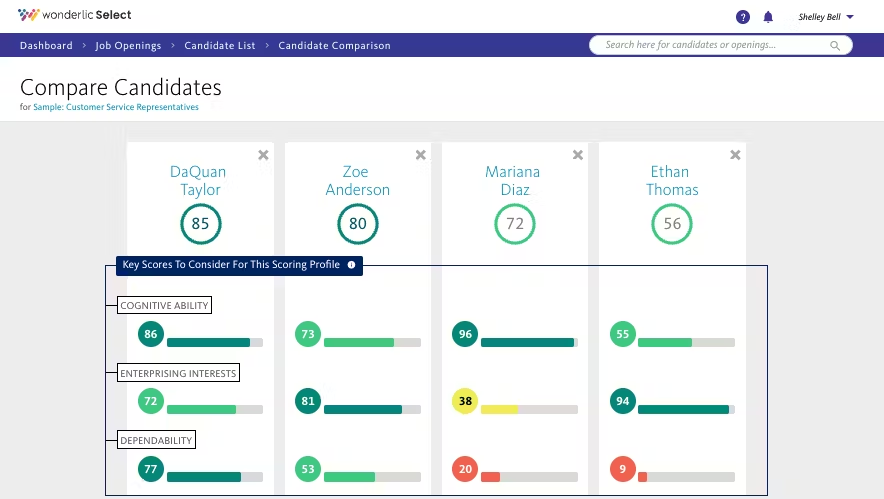
(Image Source: Capterra)
Wonderlic has been a game-changer with its concise and efficient tests that provide quick yet deep insights into a candidate’s problem-solving abilities and potential to learn new skills.
The Wonderlic test is renowned not just for its predictive accuracy regarding job performance but also for its ability to be administered quickly—often in just 12 minutes.
The tool also helps to ensure that we are considering candidates who cannot only perform the job today but can also adapt and grow with the position and the organization.
What You Will Like:
- Supports both online and paper-based testing methods.
- Provides detailed reports that highlight the cognitive strengths of candidates.
- Offers a consistent metric that can be used to compare the cognitive abilities of different individuals in a standardized manner.
- Results are available almost immediately after completion, which benefits administrators and test-takers.
- It can be easily integrated with other HR systems and tools, such as BambooHR, to get a more holistic view of a candidate’s profile.
What You May Not Like:
- The test’s emphasis on quick responses may favor only those who can think fast over those who think deeply.
- Relies on traditional testing norms, which may not align with all modern job requirements.
Cost: Custom pricing.
8. TestGorilla
Best for Personality & Culture Fit Assessments
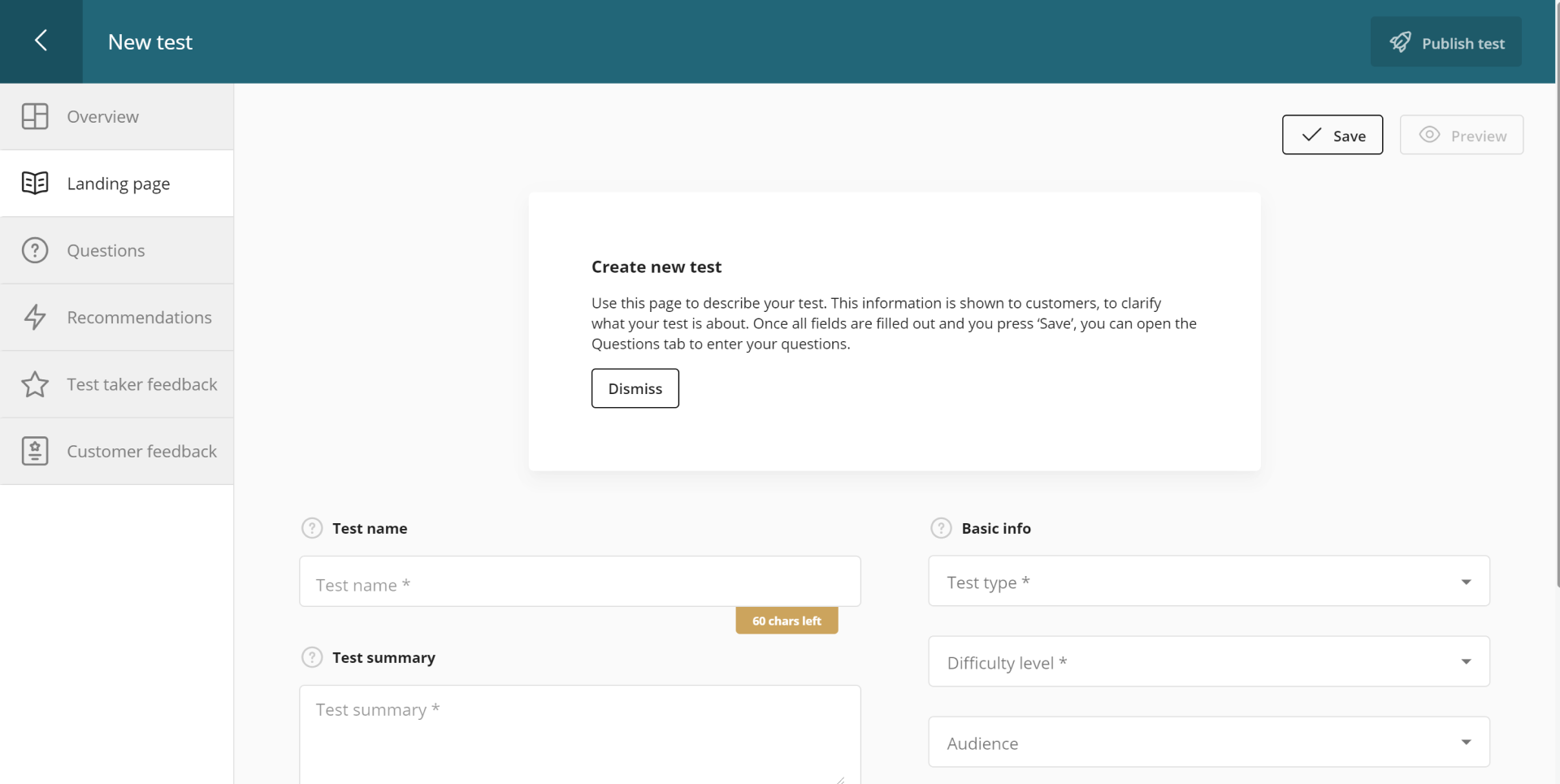
(Image Source: Smart Recruiters)
TestGorilla is one of the most exciting tools that provides access to over 400 scientifically validated tests covering cognitive abilities, programming skills, language proficiency, and more. This allows employers to assess candidates across various skills and traits, ensuring a good match for the role.
My favorite feature is the ability to customize tests to reflect a company’s specific cultural and ethical values, ensuring that you attract and select candidates who share our vision and ethos.
The results from TestGorilla have been instrumental in making informed hiring decisions, significantly improving team cohesion, and reducing turnover by ensuring that new hires are well-suited to the roles and the broader company culture.
What You Will Like:
- It has an intuitive dashboard that simplifies the management of multiple assessments.
- Utilizes artificial intelligence to deliver unbiased scoring of tests.
- You can customize the testing processes and add brand colors, logos, and video introductions to make the assessments more personal and engaging.
- Robust anti-cheating measures such as webcam monitoring, IP address tracking, and disabling copy-paste functionality during tests
- Integrates seamlessly with Applicant Tracking Systems (ATS), such as Workable, allowing for a smooth workflow where assessments
What You May Not Like:
- It aims more at preliminary screening than detailed evaluations, which may limit its usage.
- It is more expensive than most competitors and might not be suitable for small businesses.
Cost: Starts at $75/month. Billed annually.
Related Read: Top 7 TestGorilla Alternatives in 2024
9. HireVue
Best for Virtual Job Tryouts
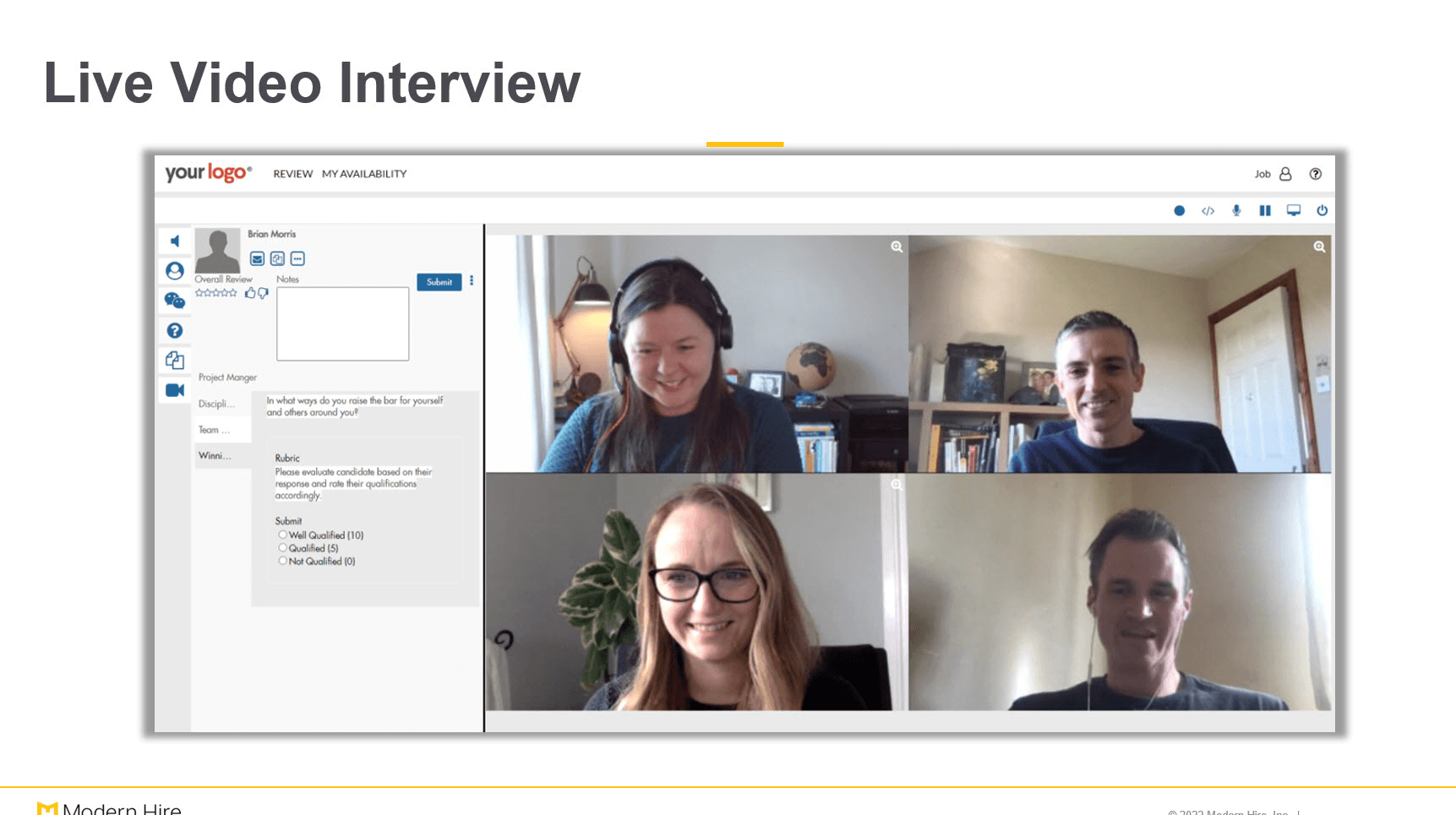
(Image Source: Trust Radius)
HireVue has transformed our approach to candidate evaluation with its innovative virtual job tryouts. These tryouts simulate a day in the life at the company, offering both the candidates and us a mutual assessment opportunity.
It has realistic job previews and situational judgment tests that are particularly valuable as they provide insights into a candidate’s decision-making process, problem-solving skills, and overall job fit.
The tool also helps predict job performance more accurately, ensuring that the hires can meet the challenges of their new roles from day one.
What You Will Like:
- Incorporates predictive intelligence to forecast job success effectively.
- It has a mobile-first approach that enables candidates to engage in assessments from anywhere.
- Custom scenarios that can be tailored to specific job requirements, enhancing relevance.
- Adheres to strict data security and privacy protocols to protect sensitive information.
- Automated scoring of interviews based on predefined criteria to ensure fair and consistent evaluation of all candidates.
What You May Not Like:
- The setup and implementation process is complex and requires substantial time.
- There have been reports of occasional connectivity issues during live video interviews.
Cost: Starts at $35,000 for a one-time license.
10. eSkill
Best for Pre-Designed Hiring Assessments
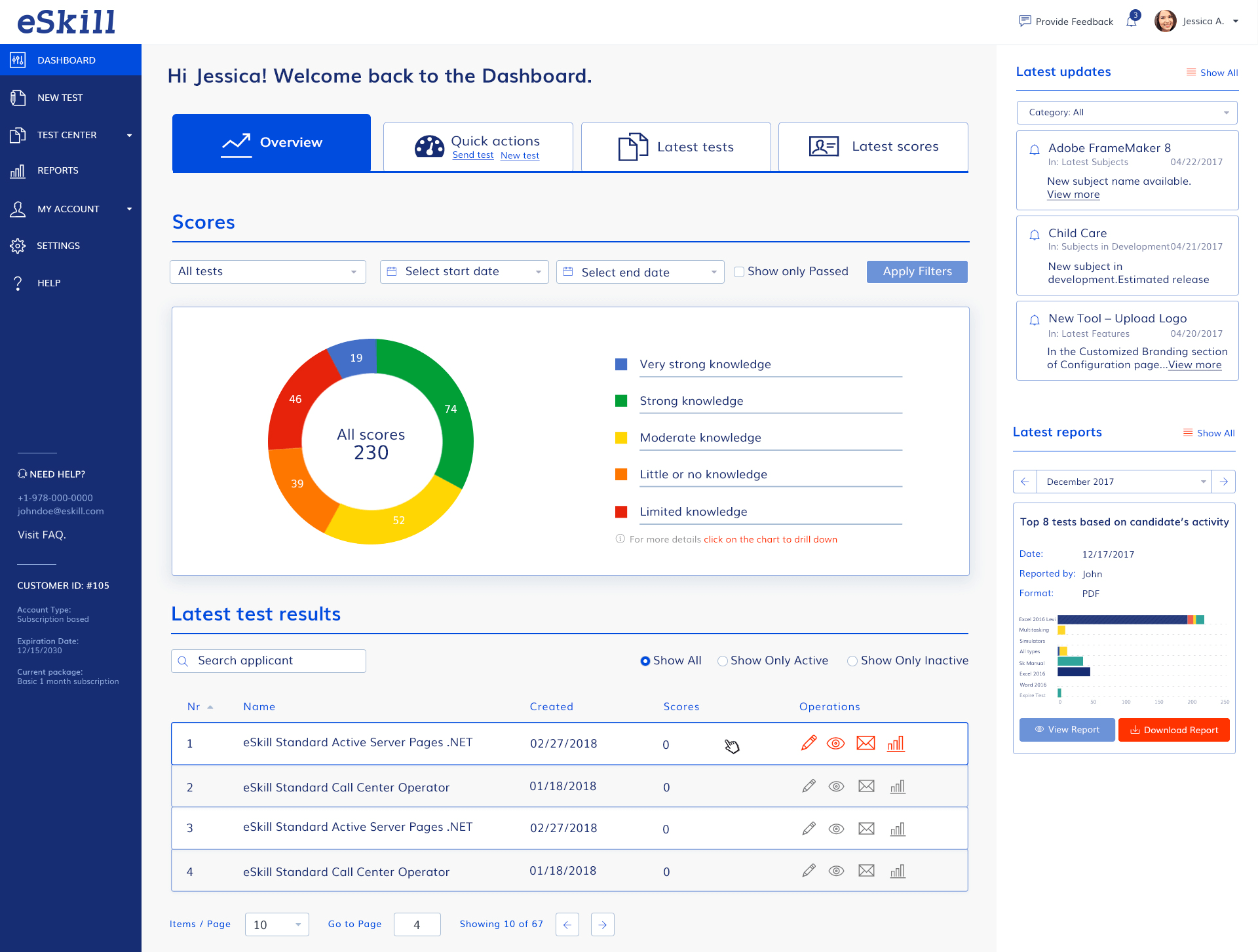
(Image Source: Software Advice)
eSkill is an indispensable part of my assessment toolkit, especially for its broad selection of pre-designed tests that evaluate candidates swiftly and effectively.
The platform’s ability to provide tailored assessments specific to job requirements is a major asset, allowing me to screen candidates with precision. ESkill offers tests that cover a wide spectrum of necessary competencies, whether it’s basic literacy skills or complex problem-solving abilities.
It has a user-friendly interface and detailed reporting features that help understand candidates’ strengths and areas for improvement, improving the overall quality of our workforce.
What You Will Like:
- Offers over 800 pre-made assessments and allows organizations to combine these with proprietary content to create customized tests tailored to specific job roles.
- Incorporates video response questions within assessments, providing a more dynamic interaction.
- Includes simulations replicating real-life job tasks, such as using MS Office, handling chats, and multitasking.
- Provides detailed reports and analytics, which help in making informed decisions based on the assessment results
- Offers round-the-clock support to ensure organizations can conduct assessments smoothly and promptly address any issues.
What You May Not Like:
- The user interface feels a bit dated, which might affect the ease of use and overall user experience.
- There is limited scope for developing completely new tests from scratch.
Cost: Custom pricing.
Watch: How to Choose the Best Assessment Software
Evaluation Criteria
The evaluation of products or tools chosen for this article follows an unbiased, systematic approach that ensures a fair, insightful, and well-rounded review. This method employs six key factors:
- User Reviews / Ratings: Direct user experiences, including ratings and feedback from reputable sites, provide a ground-level perspective. This feedback is critical in understanding overall satisfaction and potential problems.
- Essential Features & Functionality: The value of a product is ascertained by its core features and overall functionality. Through an in-depth exploration of these aspects, the practical usefulness and effectiveness of the tools are carefully evaluated.
- Ease of Use: The user-friendliness of a product or service is assessed, focusing on the design, interface, and navigation. This ensures a positive experience for users of all levels of expertise.
- Customer Support: The quality of customer support is examined, taking into account its efficiency and how well it supports users in different phases – setting up, addressing concerns, and resolving operational issues.
- Value for Money: Value for money is evaluated by comparing quality, performance, and features. The goal is to help the reader understand whether they are getting their money’s worth.
- Personal Experience / Experts’ Opinions: This part of the evaluation criteria draws insightful observations from the personal experience of the writer and the opinions of industry experts.
Ready to Create a Job Assessment Test?
Creating online job assessment tests might seem daunting, but it becomes a straightforward process with the right tools. Among the various platforms available, I found ProProfs Quiz Maker to be a really good free online job assessment test tool. It is characterized by a user-friendly interface and comprehensive feature set, which includes an AI quiz generator, customizable templates, automatic grading, and detailed analytics. So, whether you are a small business or a large corporation, this job assessment tool offers a robust solution that can be tailored to meet your specific hiring needs.
FREE. All Features. FOREVER!
Try our Forever FREE account with all premium features!



